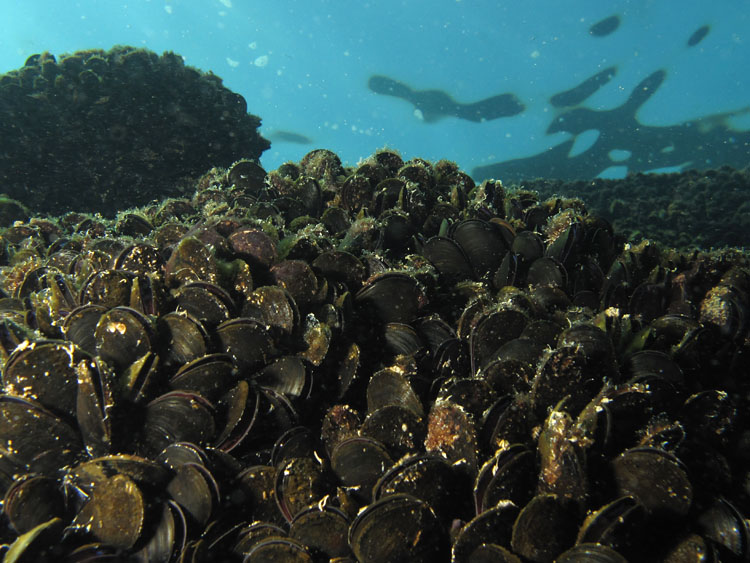
MOMICO – MOnitoraggio del MItilo del COnero-
In November 2011, thanks to the granting of funding from the Marche Region, the voluntary partnership between the Polytechnic University of Marche and Sector Operators became a real project: MOMICO.
The project aims at identifying and quantifying the possible causes of the decline in fisheries through the establishment of a medium to long-term monitoring system not only for muscle as the fishing object but also for the characteristics of the environment in to which he lives.
EcoReach L.t.d has been busy with the dissemination of project results and the creation of outreach material, inherent in the project.
The project overview and objectives
The MOMICO project has been the result of a dialogue between the Department of Life and Environmental Science of the Polytechnic University of Marche, and the Operators of the Fishermen’s Cooperative in Portonovo about the need to create a technical-scientific collaboration in order to understand natural and/or anthropogenic mechanisms that have led to a strong reduction of mussel resource over the last decades. The projects also allowed the identification and implementation of the monitoring and enhancement of the “mussel resource” and the environmental characteristics necessary for a sustainable management of the same. MOMICO aimed at satisfying the specific interest of quality assurance associations and genuineness of fishery products (eg Slow Food), consumers of “mussels” and, indirectly, of other stakeholders such as hoteliers and restaurateurs of the investigation area (eg. Baia di Portonovo).
In addition, the results of the observatory activities have provided valuable support to the study and knowledge activities of the Adriatic coastal area. The project has been specifically aimed at stabilizing a scientific “mussels” observatory and dissemination about the environmental conditions and state of health of the stock of “mussels” of the Portonovo area. The results of the project allowed us to cultivate social and economic interests as well as specific interests bearers of interest (fishermen of mussels) of other fishermen (even occasional), or cultural associations (eg. Slow Food), distributors and restaurateurs of Ancona and the province. Observatory activities are targeted at:
1) Assessing seasonal fluctuations in food availability (quantity and quality) of food available for the “mussel”
2) Evaluating the metabolic responses of the mussle in different environmental conditions (by Scope for Growth) and in response to pollution stress conditions (by biomarkers analysis)
3) Evaluating the magnitude and timing of the recruitment phases of the mosque and spatial dispersion of the larvae.
4) Analysing microbiological quality (also by biomolecular techniques) of the mussle.
